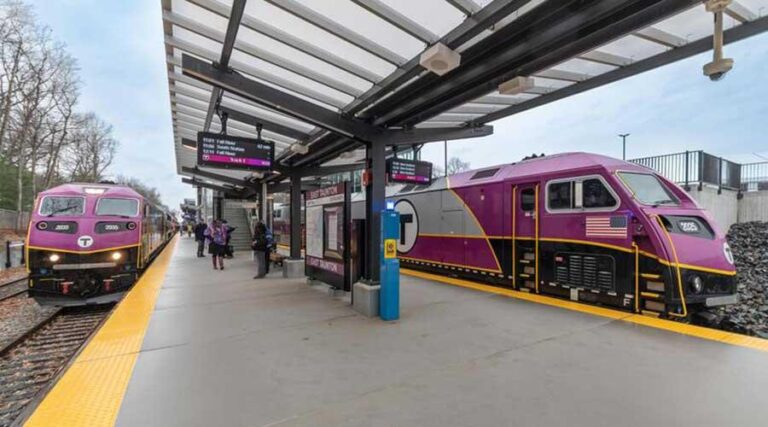The Massachusetts Bay Transportation Authority (MBTA) Board has officially approved an ambitious $9.8 billion capital plan for the years 2026 through 2030. This multi-year investment blueprint aims to modernize the region’s transit infrastructure, enhancing service reliability, safety, and capacity across the entire MBTA system. The newly greenlit plan represents a major step forward in addressing long-term transit needs and supporting the Commonwealth’s broader transportation and environmental goals.
Table of Contents
- MBTA Board Endorses Comprehensive Five Year Capital Investment Strategy
- Plan Prioritizes Modernization of Infrastructure and Expansion of Service Capacity
- Focus on Sustainability and Accessibility Drives Major Funding Allocations
- Experts Recommend Increased Community Engagement to Maximize Project Impact
- The Way Forward
MBTA Board Endorses Comprehensive Five Year Capital Investment Strategy
The MBTA Board of Directors has unanimously approved an ambitious $9.8 billion Capital Investment Plan spanning Fiscal Years 2026 through 2030. This extensive strategy aims to transform the transit system by addressing critical infrastructure needs and enhancing overall service quality. With more than 660 unique projects programmed, the plan targets modernization, network expansion, safety enhancements, and increased reliability across all MBTA modes.
Key priorities within the plan include:
- Backlogged state of good repair projects to restore and extend the lifespan of essential assets.
- Accessibility improvements ensuring equitable transit access for all riders.
- Development of new maintenance facilities geared toward supporting electric buses and trains, advancing the MBTA’s sustainability goals.
This transformative investment underscores a comprehensive commitment to shaping a resilient and future-ready transit network that meets the evolving needs of millions of commuters in Massachusetts.
Plan Prioritizes Modernization of Infrastructure and Expansion of Service Capacity
The newly approved $9.8 billion investment will aggressively target aging infrastructure with a comprehensive approach to modernization. Key projects include upgrading signal systems, track replacements, and station refurbishments designed to enhance safety, reliability, and accessibility across the entire MBTA network. State-of-the-art technologies will be integrated, allowing for increased operational efficiency and real-time service management, preparing the transit system for future demand and evolving commuter needs.
Expansion efforts are set to significantly boost service capacity by adding new vehicles, extending lines, and increasing frequency on the busiest corridors. The plan highlights:
- Fleet upgrades with more energy-efficient trains and light rail vehicles
- Track and station expansions on critical commuter rail and subway lines
- Enhanced accessibility features to ensure a more inclusive transit experience
- Investment in maintenance facilities to support increased operational demands
This proactive approach aims not only to alleviate current congestion but also to anticipate the region’s growing transportation needs over the next decade.
Focus on Sustainability and Accessibility Drives Major Funding Allocations
The MBTA’s newly approved budget reflects a robust commitment to advancing environmental stewardship and enhancing system accessibility. Central to the capital plan is the allocation of substantial funds toward lasting infrastructure upgrades, including the expansion of electrified rail fleets and improvements to energy-efficient station facilities. These investments are designed to reduce the agency’s carbon footprint while modernizing transit assets for a greener, more resilient future.
Together, the initiative prioritizes accessibility upgrades across the network, ensuring compliance with the latest ADA standards and improving the travel experience for riders with disabilities. Highlights of the funding allocations include:
- Installation of new elevators and ramps at key transit hubs
- Retrofitting older vehicles for easier boarding and enhanced comfort
- Implementation of advanced passenger information systems to aid all riders
These targeted investments underline MBTA’s dual focus on creating an inclusive transit environment and fostering sustainable transportation solutions for the coming decades.
Experts Recommend Increased Community Engagement to Maximize Project Impact
Transportation specialists and urban planners stress the necessity of robust community involvement to ensure the MBTA’s upcoming capital projects meet the diverse needs of the Greater Boston population. By actively incorporating public feedback and local insights at every phase, from planning through execution, the agency can foster greater trust and create transit solutions that resonate with daily riders and residents alike.
Key recommendations focus on:
- Expanded public forums and workshops to gather and integrate community priorities.
- Clear interaction channels offering regular updates and meaningful opportunities for dialog.
- Collaboration with neighborhood groups and equity organizations to ensure underrepresented voices are heard and addressed.
Experts affirm that fostering these connections will not only enhance project effectiveness but also promote greater accountability and long-term investment in the system’s success.
The Way Forward
With the approval of the $9.8 billion capital plan for 2026-2030, the MBTA is poised to embark on a significant phase of transit modernization and infrastructure upgrades aimed at improving service reliability and passenger experience. As the agency moves forward, stakeholders and riders alike will be watching closely to see how these investments translate into tangible improvements across the Boston-area transportation network. This ambitious plan reflects the MBTA’s commitment to meeting the region’s evolving transit needs and supporting sustainable urban mobility in the years to come.[1]

